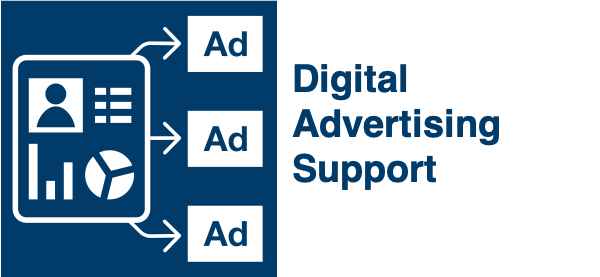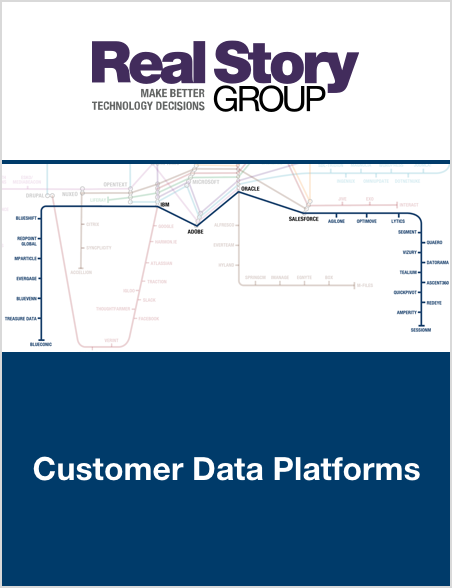CDP Scenario 8: Digital Advertising Support
The eighth scenario or business use case for Customer Data Platform (CDP) technology is Digital Advertising Support. (The other scenarios are described here: Scenario 1, Scenario 2, Scenario 3. Scenario 4, Scenario 5, Scenario 6 and Scenario 7.)
First-Party vs. Third-Party Data
 CDPs mostly target marketing (and increasingly customer service) use cases. These require the system to manage personally Identifiable Information (PII) for each customer — like their address or email.
CDPs mostly target marketing (and increasingly customer service) use cases. These require the system to manage personally Identifiable Information (PII) for each customer — like their address or email.
Therefore, they primarily work on so-called first-party data or the data that they collect themselves from customer interactions. Customer data from various sources gets associated to a single individual's ID. These associations tend to be more deterministic and less probabilistic (i.e., less guesswork).
Advertising, on the other hand, historically has tended to use more of third-party data. As the name suggests, this data is usually procured from third-party data exchanges and aggregators. This data of customers from different sources is rather loosely connected via a cookie or something similar, maintaining overall anonymity. As a result, the data linkages are relatively more probabilistic and less deterministic.
Convergence in MarTech and AdTech
While CDPs mostly focus on MarTech scenarios, purely in terms of technical capabilities, they have some overlaps with Data Management Platforms (DMPs) that focus on AdTech use cases. As a result, some CDP vendors can also be used for advertising use cases. In fact, some CDPs do provide a subset of DMP features.
Even if CDPs themselves don’t provide DMP features, there are two other ways they can play well with AdTech tools.
First, most CDPs can integrate with DMPs and other tools to get second-party and third-party data which they can use to enrich their first-party data. This can be very useful for analytics and targeting.
Second, they can provide their first-party data to ad targeting environments. In fact, a few tools provide specific capabilities for advertising scenarios by integrating with ad servers and other adtech platforms.
Therefore, even though CDPs don’t focus primarily AdTech use cases on their own, you should evaluate their specific capabilities for playing well with DMPs and other adtech tools.
RSG can help you with your analysis. If you are a subscriber, you can use our RealQuadrant Shortlist Generator to find out which CDP vendors excel at this scenario. Our evaluations also call out specific capabilities for this scenario for each vendor.









